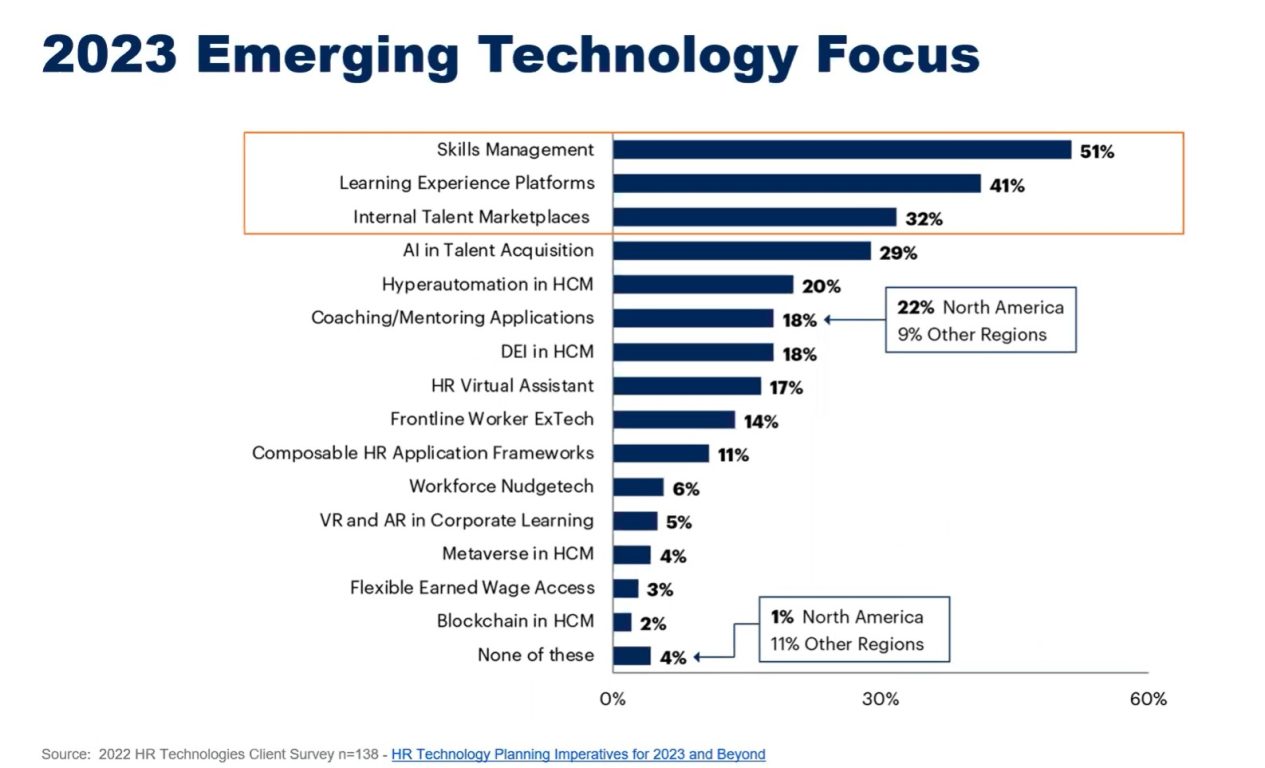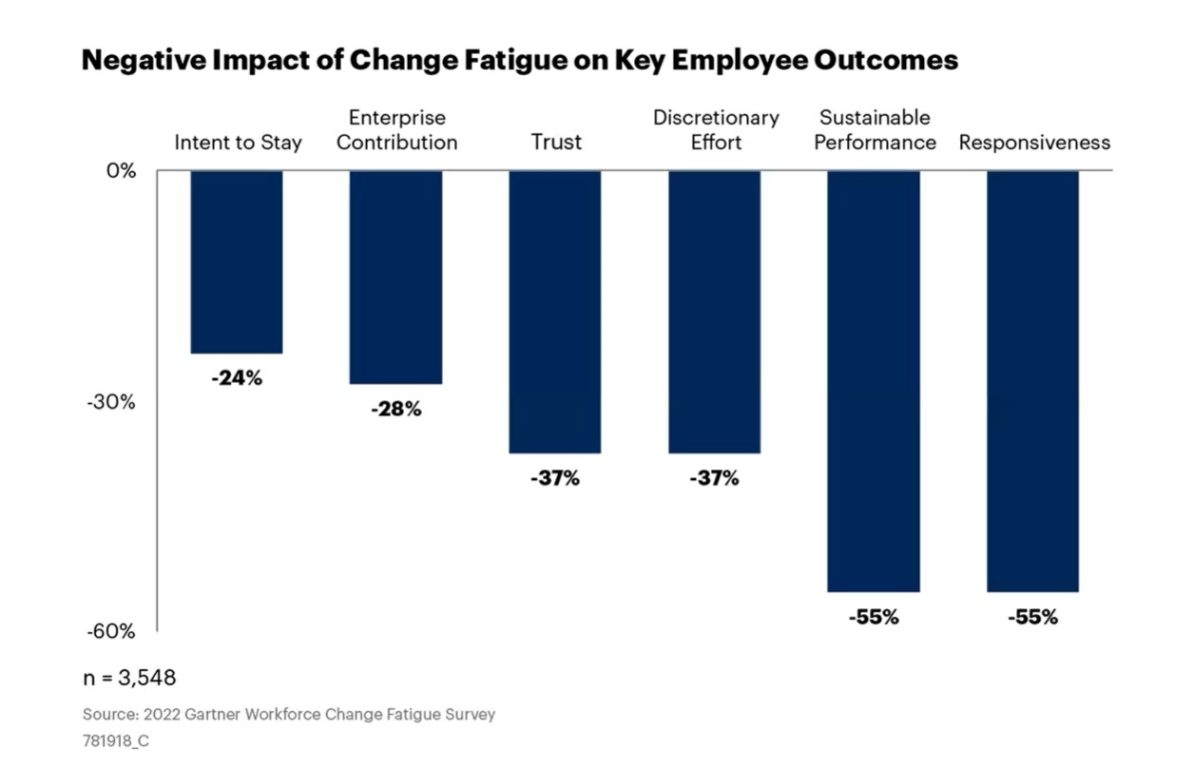Gartner: 3 decisions HR leaders must make now
The analyst firm’s top HR minds share their views on where leaders should prioritize their efforts.
News in Brief
After three years of disruption, HR is still on the frontline and firefighting issues as they crop up.
It's time for that to change, say Gartner analysts.
Intention is key to future success, as is looking at all HR tech (not just AI).
Three HR experts from Gartner have weighed in on how HR leaders can meet the plethora of challenges they are facing head on.
Over the past three years, HR teams have been on the frontline. The department has been front and center as employers struggle to figure out their working models – whether that’s in-person, remote or somewhere in the middle (aka hybrid) – as well as grapple with rapidly changing employee expectations about what they want (and need) from their companies.
2023 has seen a continuation of these trends, as well as brought a new set of challenges – notably a looming recession, sky-high inflation rates and cost of living crises, and layoffs, plus a reinvigorated conversation about the role of AI at work.
Read on to see where Gartner’s HR analysts think HR leaders need to prioritize; where should they start when tackling these issues head on?
1. Get intentional about the future without fear
Emily Rose McRae, senior director analyst of the HR practice, noted that Gartner clients have been sharing that for the past few years, HR has just been “reacting and putting out fires” as they emerge.
They are taking decisions “based on a lot of fear and a lot of anxiety”, and this is a problem because many decisions that are being made now are starting to shape company’s future direction.
They can “set a precedent” and put organizations on a certain path that fundamentally shapes the future of work, whether that is the intention of not.
Amid continuing disruption from talent shortages and financial pressures, it is time for HR teams to get intentional about not just the future, but also the current of work.
For McRae, organizations (and leaders) need to figure out if they want to be so-called explorers or restorers.
Restorers are those who are keen to return to the old ways of working – when things were familiar, and when HR knew what employees needed; while explorers are excited for the future – they are on board with experimenting with AI or trialing things like a four-day work week, working from anywhere or workcations.
She is clear that there is no right answer; being an explorer isn’t inherently better than being a restorer – it depends on the organization. However, it is essential that the entire leadership is in agreement on the organization wide approach.
For instance, if you have a C-Suite that full of restorers, and an explorer-heavy senior leadership team, then conflict is pretty much inevitable.
HR will inevitably get caught in the middle, trying to balance “the pressure to take advantage of this opportunity for change and the pressure to stay with what we know works”.
This makes it all but impossible for HR departments, and organizations as a whole, to move beyond firefighting and into strategizing and preparing for the future.
2. Assess wider emerging HR tech – AI isn’t everything
A huge topic of the moment is artificial intelligence (AI), and particularly the newest iteration, generative AI – best exemplified through OpenAI’s highly advanced chatbot ChatGPT.
McRae warns that organizations need to be very wary of employees’ use of generative AI tools.
Despite the huge productivity gains, they put organizations at huge risk – this is because “if you’re using a publicly available tool, you may not be able to the validate the accuracy of the information” it produces.
Putting guardrails up could be a solution, another answer is banning them altogether – it is for organizations to decide what is the best for their business and their workforce.
John Kostoulas, vice president analyst at Gartner, then picked up the technology thread. He shared insights into the HR tech hype cycle, and what emerging technology Gartner has identified as leading the way in 2023.
Of course, AI is near the top of the list – particularly in the talent acquisition space – but other highlights include skills management tools, learning experience platforms and internal talent marketplaces.
All of this suggests that amid an ongoing talent shortage, organizations really see these technologies as solving a big problem: talent retention. They know that they cannot rely on external hiring to close their talent and skills gaps, they need to invest in upskilling and reskilling their own internal talent.

Kostoulas shared that he was surprised that the VR, the metaverse and blockchain to not be high HR tech priorities in 2023. One of the issues, according to Kostoulas, is the limited use cases at work – whereas generative AI already has a broad range of use cases and vendors.
HR leaders just need to figure out how to balance the risks with the rewards, and which use cases make most sense in their business. There’s nothing wrong with failing fast, and learning from your mistakes, with technology adoption.
3. Nip change fatigue in the bud
AI was also a major discussion point for Gartner HR’s director of employee experience research Caitlin Duffy.
Despite all the media hubbub about generative AI coming for people’s jobs, Gartner research shows that employees are not actually super worried about that. Instead, they are much more concerned about the privacy and security issues with AI and the impact of a recession and layoffs on their future employment.
While layoffs are devastating for those who lose their jobs, they also cause huge challenges for those who stay at the company – they face more pressure with less resource or support.
Employees are also grappling with “change fatigue”, according to Duffy. And this is a huge issue for organizations – in terms of productivity, trust, and intent to stay.

To tackle this, Duffy calls on HR leaders to really lean into creating a great employee experience, and building (and rebuilding) connections between employees, and managers and the organizations.
Just like with clamping down on firefighting, intentionality is key. “It is really critical for leaders to be intentional about what they’re trying to achieve, and how clearly they communicate those objectives with employees”, notes Duffy.
In fact, Gartner’s 2022 ReimagineHR survey found that organizations were five times as likely to have a high-performing team if they were intentional about connections.
Another key aspect to intentionality is being aware that no one-size-fits-all – not all employees have the same experiences in the world of work. Gartner found that women are actually struggling more with fatigue and burnout, neurodivergent employees might struggle with over-stimulating working environments.
Introverts do better in asynchronous meeting environments, while junior employees thrive from observing more senior colleagues in an office environment.
Therefore, “HR really needs to be intentional and thoughtful about that work design. It needs to lead the way in establishing principles, not policies, and really understand the unique experience of different talent segments to make sure that all of them have what they need to succeed”, concludes Duffy.
Sign up to the UNLEASH Newsletter
Get the Editor’s picks of the week delivered straight to your inbox!

Chief Reporter
Allie is an award-winning business journalist and can be reached at alexandra@unleash.ai.
Contact Us
"*" indicates required fields
Partner with UNLEASH
"*" indicates required fields